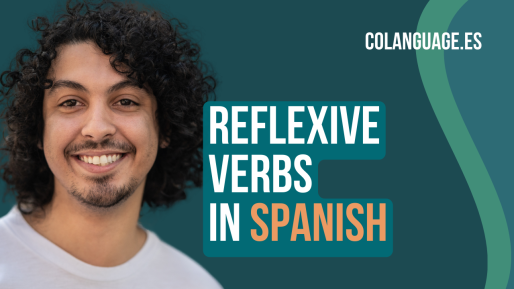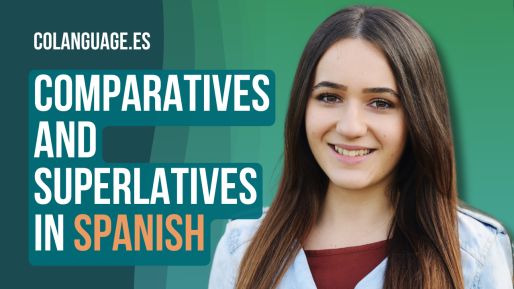Difference between "por" and "para": Spanish prepositions Share Copied!
Spanish
Master the differences between "por" and "para" in Spanish. Master with practical exercises!
Video
Podcast
What are prepositions?
Prepositions help us make sense of how things relate to each other in a sentence. In Spanish, there are two prepositions that translate to "for" in English. It's important to learn the difference between the two to avoid misusing them.
- Pagué por el servicio de entrega rápida. (I paid for the fast delivery service.)"por"
- El tren sale para Madrid a las cinco de la tarde. (The train leaves for Madrid at five in the afternoon.)"para"
Preposition "por"
The preposition "por" is used to express the means, manner or the cause for achieving something.
A first use case is to indicate exchange or substitution of something.
| Use Case | Spanish | English |
|---|---|---|
| Exchange or substitution | Cambié mi camisa por la tuya. | I exchanged my shirt for yours. |
| Te doy veinte euros por tu ayuda. | I will give you twenty euros for your help. |
A second use case it to express the duration of an action.
| Use Case | Spanish | English |
|---|---|---|
| Expressing duration | Estudié por dos horas. | I studied for two hours. |
| Trabajó en la empresa por cinco años. | He worked at the company for five years. |
Sometimes, we use it to show the reason, motive, or cause behind an action.
| Use Case | Spanish | English |
|---|---|---|
| Reason, motive, or cause | Viajo por trabajo. | I travel for work. |
| Lo hice por amor. | I did it out of love. |
Another use case is when talking about a rate, cost, or unit of measurement.
| Use Case | Spanish | English |
|---|---|---|
| Rate, cost, or unit of measurement | Corro diez kilómetros por día. | I run ten kilometers per day. |
| El salario se calcula por hora. | The salary is calculated per hour. |
It can also be used to indicate movement through a place or along a path.
| Use Case | Spanish | English |
|---|---|---|
| Movement through a place or along a path | Paso por la tienda. | I pass by the store. |
| Caminamos por el parque. | We walked through the park. |
The preposition "por" can also describe the means by which something is done.
| Use Case | Spanish | English |
|---|---|---|
| Means by which something is done | Hablamos por teléfono. | We talked on the phone. |
| Nos comunicamos por correo electrónico. | We communicate by email. |
Preposition "para"
The preposition "para" is generally used to refer to the destination or final purpose of an action.
A common use case is when talking about deadlines or specific points in time.
| Use Case | Spanish | English |
|---|---|---|
| Deadlines or specific points in time | Necesito el informe para mañana. | I need the report for tomorrow. |
| El proyecto tiene que estar listo para la reunión. | The project has to be ready for the meeting. |
It can also be applied when making a comparison with a standard or an expectation.
| Use Case | Spanish | English |
|---|---|---|
| Comparison with a standard or expectation | Es alto para su edad. | He is tall for his age. |
| Es pequeño para un perro. | He is small for a dog. |
The preposition "para" can be used to express who benefits or receives an action.
| Use Case | Spanish | English |
|---|---|---|
| Recipient or beneficiary of an action | Hice el pastel para mi familia. | I made the cake for my family. |
| Este regalo es para ti. | This gift is for you. |
It can indicate direction or movement towards a specific place.
| Use Case | Spanish | English |
|---|---|---|
| Direction or movement towards a specific place | Salimos para Madrid mañana. | We're leaving for Madrid tomorrow. |
| Salimos para el aeropuerto ahora. | We're leaving for the airport now. |
The following use case shows how to express opinions or to make comparisons.
| Use Case | Spanish | English |
|---|---|---|
| Expression of opinions or comparisons | Para mí, es la mejor película. | For me, it's the best movie. |
| Para ella, el chocolate es mejor que la vainilla. | For her, chocolate is better than vanilla. |
The last use case is when expressing the purpose or goal of an action.
| Use Case | Spanish | English |
|---|---|---|
| Purpose or goal of an action | Estudio para ser médico. | I study to become a doctor. |
| Compré este libro para mejorar mi español. | I bought this book to improve my Spanish. |
Spanish idioms and expressions using the preposition "for"
In Spanish, many expressions are made with different prepositions. Learning idioms allows learners to communicate more naturally and fluently.
The following table includes common Spanish expressions using the preposition "por".
| Spanish idioms and expressions | Spanish | English |
|---|---|---|
| Por supuesto | ¡Por supuesto que quiero ir contigo al cine! | Of course I want to go to the movies with you! |
| Por favor | ¿Puedes pasarme la sal, por favor? | Can you pass me the salt, please? |
| Por fin | Después de meses de espera, por fin llegó mi cumpleaños. | After months of waiting, finally my birthday arrived. |
| Por lo tanto | Llovió mucho, por lo tanto, cancelaron el partido. | It rained a lot, therefore, they canceled the game. |
| Por cierto | Por cierto, se me olvidó decirte que llamó tu hermano. | By the way, I forgot to tell you that your brother called. |
| Por si acaso | Coge un paraguas, por si acaso llueve durante el paseo. | Bring an umbrella, just in case it rains during the walk. |
The next table includes Spanish expressions using the preposition "para".
| Spanish idioms and expressions | Spanish | English |
|---|---|---|
| Para siempre | Estaremos juntos para siempre. | We'll be together forever. |
| Para nada | No me importa para nada. | I do not care at all. |
| Para entonces | Para entonces, ya habré terminado el informe. | By then, I'll have finished the report. |
Key takeaways
Here is a quick summary of this lesson.
- In Spanish, there are two prepositions ("por" and "para") that translate to "for" in English.
- "Por" is used to express the means, manner or the cause for achieving something.
- "Para" is generally used to refer to the destination or final purpose of an action.
Subscribe to our social media channels to get free daily exercises!



